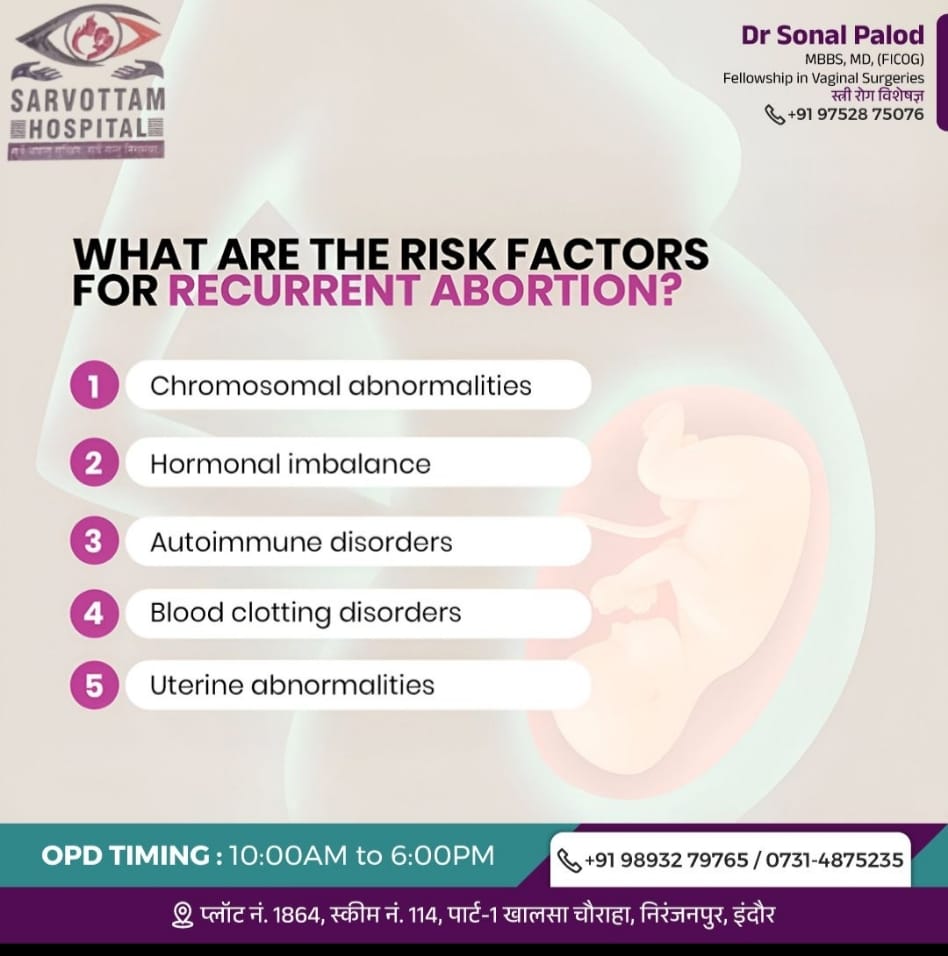
2025-01-16T06:32:33
Recurrent abortion, defined as two or more consecutive pregnancy losses, has several risk factors. These include chromosomal abnormalities in parents or the embryo, uterine abnormalities (e.g., septate uterus, fibroids), and hormonal imbalances such as polycystic ovary syndrome (PCOS) or luteal phase defects. Autoimmune disorders like antiphospholipid syndrome, thrombophilias, and infections (e.g., chlamydia) are significant contributors. Advanced maternal age and paternal factors, including sperm quality, can increase risks. Lifestyle factors such as smoking, alcohol use, obesity, and stress also play a role. Environmental exposures and poorly controlled chronic conditions like diabetes or thyroid disorders further exacerbate the risk of recurrent pregnancy loss.

